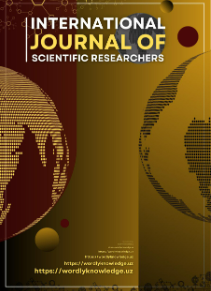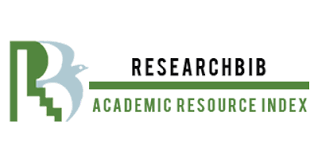TABRIK MATNLARINING GENDER XOSLANISHI
Keywords:
social inclusion, gender, genderolingvistik studies, congratulatory text, social roleAbstract
language is a phenomenon associated with a person's life, his social activities. In order to know what social task the linguistic sign is, how to use it, it is also necessary to pay attention to what social system a person lives in today's day is one of the main tasks of linguistics. Under such conditions, the gender characteristics of the individual should also be taken into account, no doubt. The concept of gender, which initially meant only biologically differentiating, is being interpreted as the worldview, culture, decency inherent in men and women, as well as their speech and language, to this day. It is even being studied as a separate field. This, of course, shows the importance of gender counseling.
The issue of gender social inclusion in sociolinguistic research requires a separate study. Because gender is the concept that determines the role and role of a man and a woman in society. It was tried to give the results of observations on this direction, one of the youngest areas of study of biological sexes in the social environment, in this article. In particular, attention was paid to issues such as the importance of gender in sociology, its participation in processes ranging from physical characteristics to social roles, the role of gender in the social characterization of greeting texts.
Descriptive, comparative, eksperement techniques were used in the article.
References
1.Abduxalilova D., Rahmatov F., Xudaybrerdiyeva Z. 2021. Frazeologiyada gender muammmosi. ACADEMIC RESEARCH IN EDUCATIONAL SCIENCES. VOLUME 2 | ISSUE 6 | 1341-p.
2.Lakoff R.T. 1975. “Language and Woman’s Place”. New York. Harper and Row . P. 41-48-49.
3.Kurbanova M. 2014. Genderolingvistik tadqiq yangi paradigma sifatida. O‘TA, № 2. B 43.
4.Mahmudov N. 2016. O‘zbek tilshunosligining bugungi muammolari. “O‘zbek tilshunosligi: taraqqiyoti...istiqbollari” mavzusidagi Respublika Ilmiy-nazariy anjumani materiallari. Toshkent: “Mumtoz so‘z”, B 156.
5.Sharipova O‘., Yo‘ldoshev I. 2016. Tilshunoslik asoslari. Toshkent –B 80.
6.Yo‘ldasheva X. 2017. O‘zbek tarixiy romanlarining sotsiolingvistik tadqiqi. Fals.dok.(PhD) diss. Toshkent., B 20.







